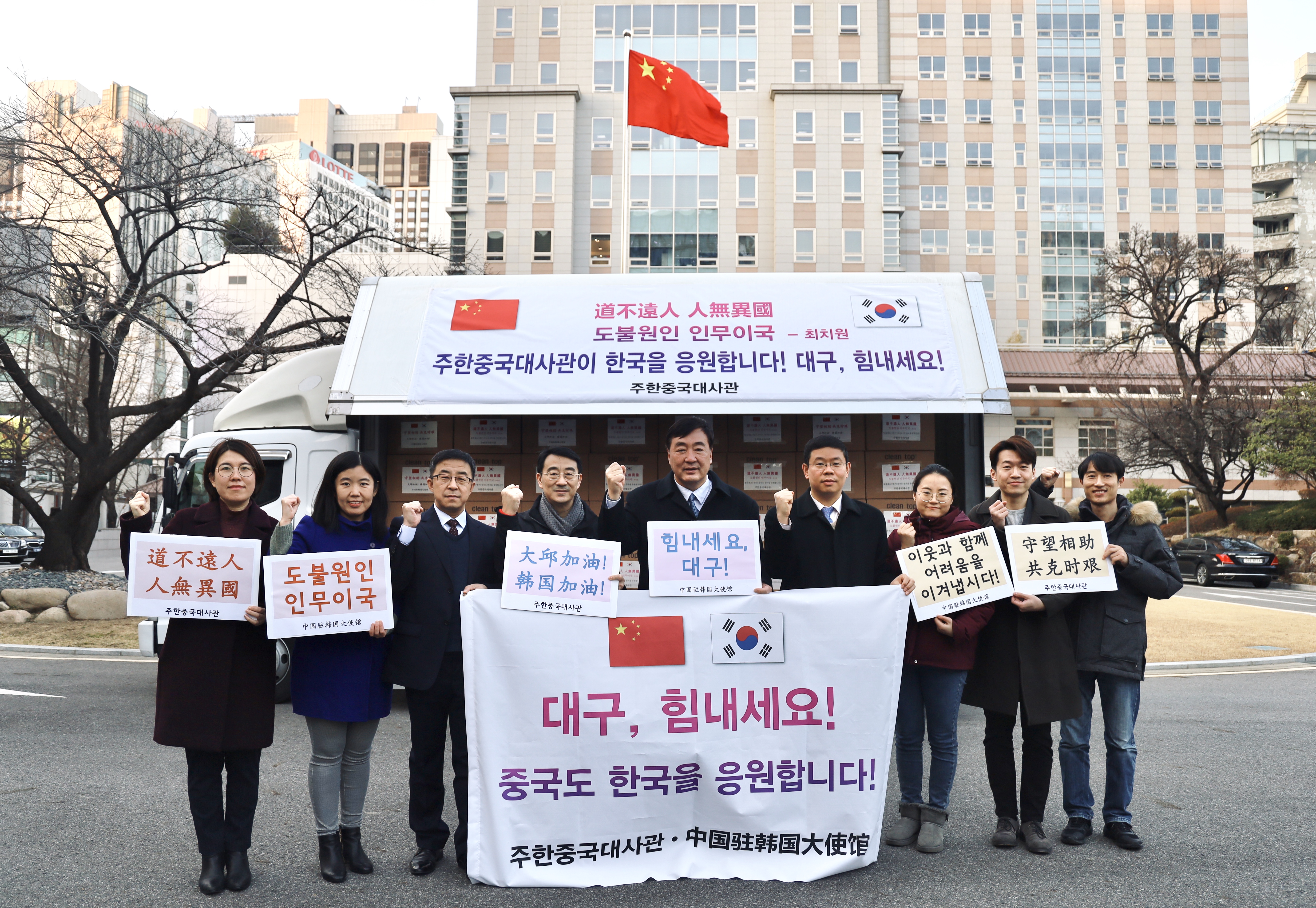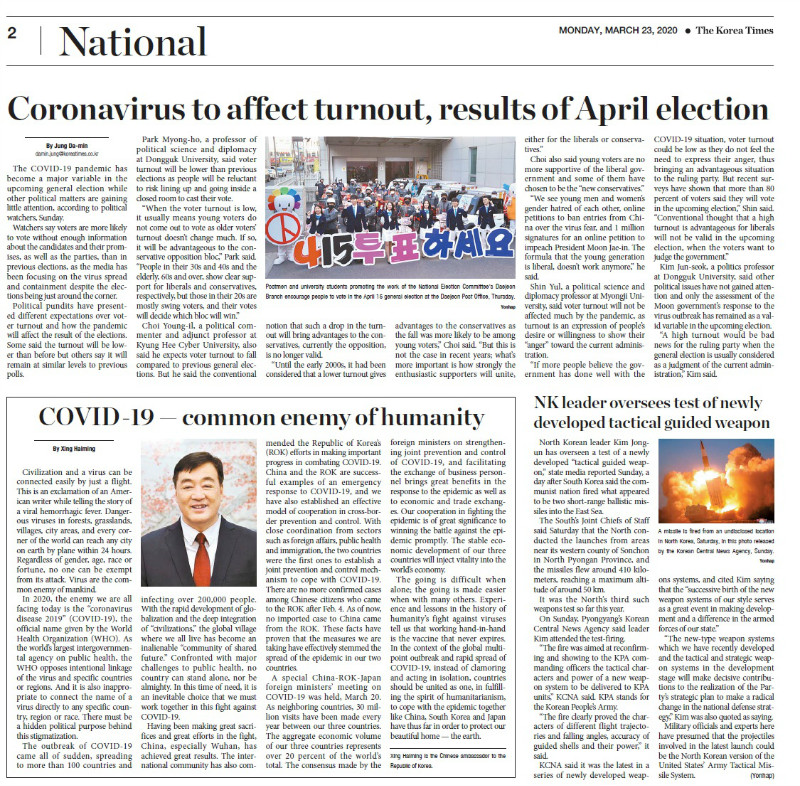
Photo: People's Daily
Editor's note: The Korea Times and its website published a signed article by the Chinese ambassador to the Republic of Korea Xing Haiming entitled "COVID-19 -- common enemy of humanity". The full text is as follows:
Civilization and a virus can be connected easily by just a flight. This is an exclamation of an American writer while telling the story of a viral hemorrhagic fever. Dangerous viruses in forests, grasslands, villages, city areas, and every corner of the world can reach any city on earth by plane within 24 hours. Regardless of gender, age, race or fortune, no one can be exempt from its attack. Viruses are the common enemy of mankind.
In 2020, the enemy we are all facing today is the coronavirus disease 2019 (COVID-19), the official name given by the World Health Organization (WHO). As the world's largest intergovernmental agency on public health, the WHO opposes intentional linkage of the virus and specific countries or regions. And it is also inappropriate to connect the name of a virus directly to any specific country, region or race. There must be a hidden political purpose behind this stigmatization.
The outbreak of COVID-19 came all of sudden, spreading to more than 100 countries and infecting over 200,000 people. With the rapid development of globalization and the deep integration of "civilizations," the global village where we all live has become an inalienable "community of shared future." Confronted with major challenges to public health, no country can stand alone, nor be almighty. In this time of need, it is an inevitable choice that we must work together in this fight against COVID-19.

Having been making great sacrifices and great efforts in the fight, China, especially Wuhan, has achieved great results. The international community has also commended the Republic of Korea's (ROK) efforts in making important progress in combating COVID-19. China and the ROK are successful examples of an emergency response to COVID-19, and we have also established an effective model of cooperation in cross-border prevention and control. With close coordination from sectors such as foreign affairs, public health and immigration, the two countries were the first ones to establish a joint prevention and control mechanism to cope with COVID-19. There are no more confirmed cases among Chinese citizens who came to the ROK after Feb. 4. As of now, no imported case to China came from the ROK. These facts have proven that the measures we are taking have effectively stemmed the spread of the epidemic in our two countries.
A special China-ROK-Japan foreign ministers' meeting on COVID-19 was held, March 20. As neighboring countries, 30 million visits have been made every year between our three countries. The aggregate economic volume of our three countries represents over 20 percent of the world's total. The consensus made by the foreign ministers on strengthening joint prevention and control of COVID-19, and facilitating the exchange of business personnel brings great benefits in the response to the epidemic as well as to economic and trade exchanges. Our cooperation in fighting the epidemic is of great significance to winning the battle against the epidemic promptly. The stable economic development of our three countries will inject vitality into the world's economy.
The going is difficult when alone; the going is made easier when with many others. Experience and lessons in the history of humanity's fight against viruses tell us that working hand-in-hand is the vaccine that never expires. In the context of the global multi-point outbreak and rapid spread of COVID-19, instead of clamoring and acting in isolation, countries should be united as one, in fulfilling the spirit of humanitarianism, to cope with the epidemic together like China, South Korea and Japan have thus far in order to protect our beautiful home - the earth.


